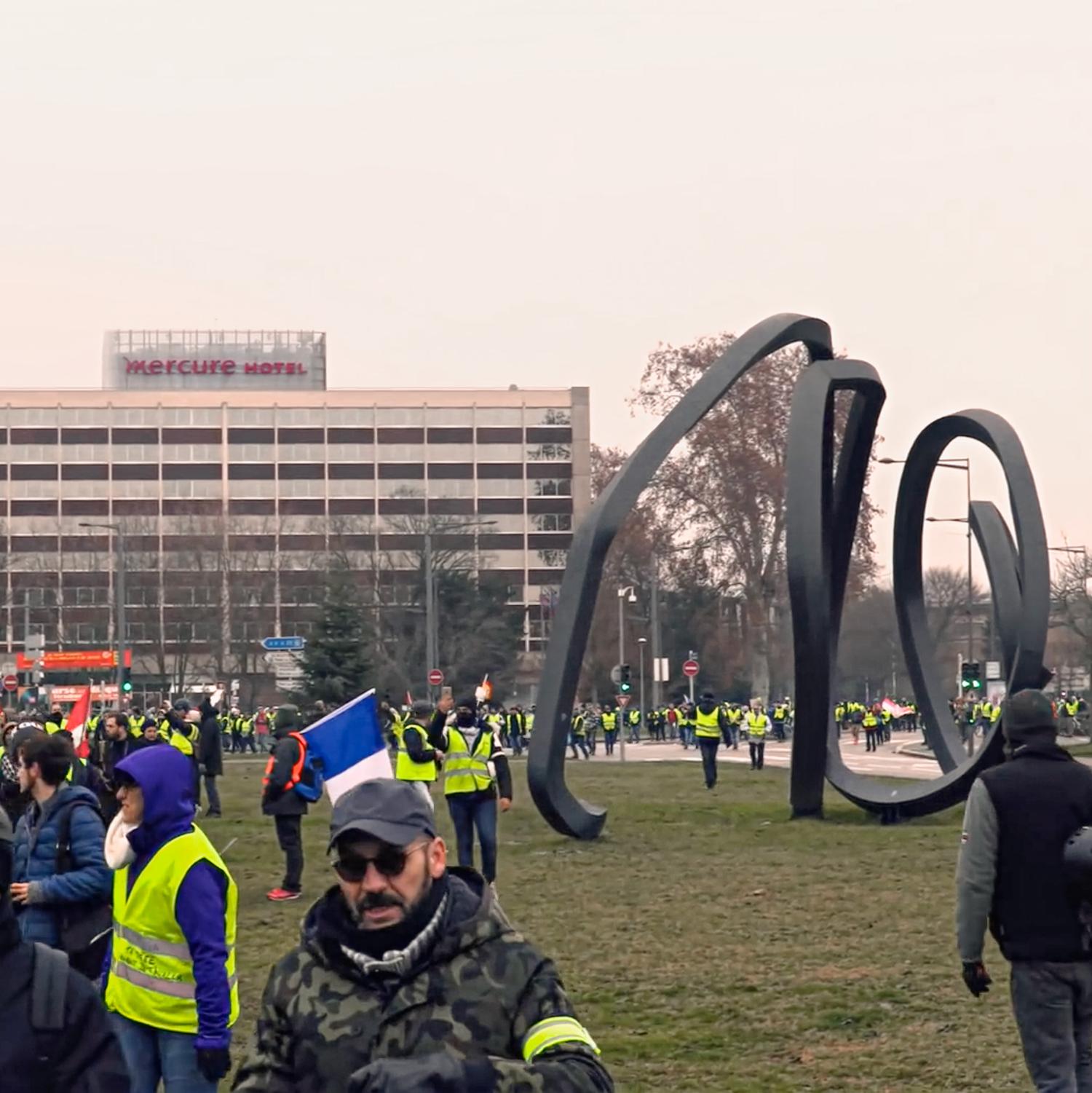
ARTISTES, CITOYEN.NES PARMI LES CITOYEN.NES
A tribune on January 11, 2019 entitled “ARTISTS, CITIZENS AMONG CITIZENS” states the following question of engagement and its modes of action in institutional culture. @zizia-cyke documentation contributor returns on this call, which reveals the scale of the gap between agents of the official culture heavily challenged by the creativity of the yellow vests movement and the social environment.
Let’s talk about this text published on Médiapart, on one hand because it falls out of my hands and because it is symptomatic of what regresses, stalls and rots.
We are witnessing to a light movement, a leap that is outraged in an astonishing softness and calls for an imaginary rally: let us say, a façade. It costs nothing, it is simple, vague and comforting. Precious catch–up which is needed to be preserved to teach future generations how courageously artists authors of our time are fighting.
Let us move quickly from paragraph to paragraph:
- 2019 thus and always this very interesting “anti–capitalist convergence”, this mysterious hub where wrestlers from all walks meet, not to mention politically engaged people. This text clearly notes that “people are alone in front of their TV” and that they have different ways of understanding what is happening. As do the cultural circles, which are bringing out “simultaneously embarrassed silences” – sometimes even “moral condemnations”. Fortunately, they are vigilant in regard to the recovery of extremists and abstainers.
- A short note on “paying the rent” which is very well felt and timely.
- They bet on “the progressive orientation of the movement”. I thought the idea of progress was buried.
- “With a spirit of democratic sharing”, “preserving bio–diversity and a non–violent way of life”. No comment.
- I also note this funny well sent syllepsis: “When everything will be private, we will be deprived of everything!” I think it is more of a syllogism.
Leaving these clichés aside, I will list some others:
They “artists and artists’ collectives, curators, authors and art critics, art historians, cultural mediators, art teachers” wish the State to stop its withdrawal and its privatization approach to culture. May the one who has never received any money from the private sector throw the first stone at them. I am wholeheartedly with them.
Anyway, they are resolved and it is something, see for yourself:
It starts with a classic crooked approach to the commodification of art, followed by a little wink that feels good to Debord, may his soul rest in peace. Then comes the “secularism”, followed closely by “the respect for diversity and the fight against all forms of discrimination”. Afterwards, we pass to the most “politically engaged” part, which is close to violence and rebellion, the 300 are ready, if not determined, “to thwart any type of collapse, whether climatic, ecological or especially state”. Grammatically they are thus against the collapse of the State but I can only assume they have not made any mistakes. Then follows ramblings about “fragility, the new covenant”, about the need to “invent and not to be so resilient” but they still promise to pay more attention to the living. They are ready for anything, if not determined, to invent “new transversal solidarities”, all thanks to mutual assistance and the “hyphen”.
To conclude, they want to engage “the fight for shared creativity” and above all they want to take part – let us not forget the important thing is to participate – in the “REVITALIZATION OF DEMOCRACY”.
A moderate text signed by those who maintain the status quo in Paris and all over France, who allow that nothing changes, who adapt and adjust to the real, who know how to bend their backs with outrage, who know how to reach out to receive what they need to “pay the rent” and who know where the wind blows. I am not innocent, I too have taken part as an artist–author to the game of art but I am tired of seeing the same rules applied, the same ideology running around in background noise, a dissolution of all controversies, a weakening of words and speech, a latent fatalism.
This text can be read as an exhibition press release, a random assembly of vague and unclear concepts. It is symptomatic of the need for rapid change. If art has so far not been the scene for political claims, but rather for advertising, it is now urgent to rethink it as a space that allows the production of thoughts, that raises the question of its own ideology and its own position in society. To engage today as an identified community when we only share a few references seems hasty to me. Each of us with our chosen communities, we should perhaps start to disengage from continuity, use violence if necessary and distrust because “we are not afraid of ruins” 1. Art being only the mediatization space for gestures, it must be used as such, to analyse in words and in the use of spaces what is worrying: power, situations of interference, contempt for the mind and vice–versa contempt from some intellectuals, institutionalization, effective solidarity that is not just an act of pity….
It is surprising that I am surprised that people from cultural backgrounds are getting involved, probably because I know the jingle, it follows the wind or it leaves for America.
@zizia-cyke
1 “We, the workers, can build others to take their place, and better ones! We are not in the least afraid of ruins. We are going to inherit the earth, there is not the slightest doubt about that. The bourgeoisie might blast and ruin its own world before it leaves the stage of history. We carry a new world, here, in our hearts. That world is growing this minute.”
Buenaventura Durruti, Joe King, extrait le 1er Janvier 2005, www.cat.org.au
https://theanarchistlibrary.org/library/joe-king-buenaventura-durruti